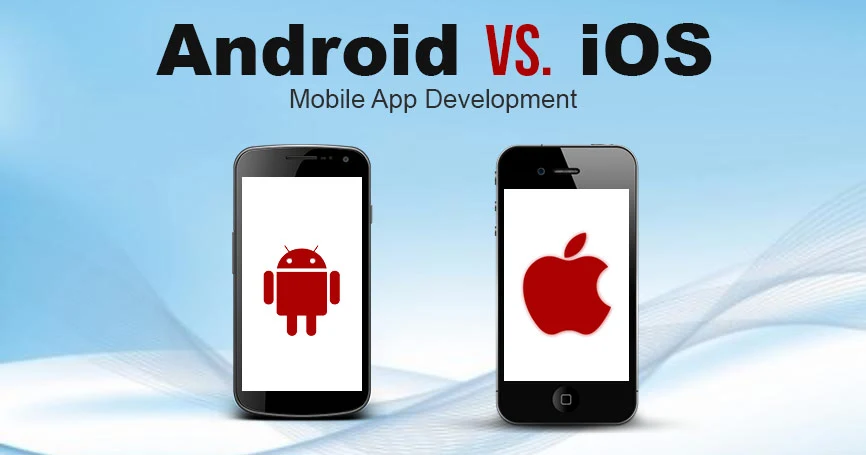Android and iOS are the most popular operating systems for web and mobile apps and are the eternal rivals when it comes to market share and the number of users. Even though Android devices have the highest global market share, or 84% to be exact, in comparison to iOS’ 16%; iOS users dominate the App store for customer spending. The pros and cons are evident in both operating systems, and it is up to the user’s preference for the finished product to decide which one they will go for.
However,
when it comes to developers choosing their future career or CTOs recruiting a
team for the development of a client’s web, choosing an OS is not that
straightforward. An analysis of all benefits, advantages, and disadvantages
should be carefully completed, and then the pick should be made. Especially
when it comes to starting with the development process, and you need Android or
iOS
developers for hire. To help with the
consideration of all essentials, both giants perform in specific areas.
Advantages of iOS
More Stable & Secure
When
it comes to performance, it is safe to say that iOS is much more stable and
user-friendly. Because it is a closed platform - Apple created all software and
hardware, there is no possibility to download from a third-party website or
app. Therefore, the risk of downloading suspicious apps or virus files that
will steal your private data or crush the system is minimized to a great extent.
Straightforward Integration with Devices
There
are only about 20 different types of iOS devices. It is super clear that the
development process of the OS will be simpler and quicker since there is
significantly less device fragmentation, screen size, and resolution. On the
other hand, there are thousands of mobile devices that are powered by Android,
which means that the development of the system to be suitable for each model is
a much more complex process.
Superior User Experience
The
majority of iOS users are greatly satisfied with the whole system and its
performance. This is thanks to Apple’s detailed design guide for app UI that
helps developers build and craft a superior user experience. It is basically a
clear direction in which the iOS developers should move when working on the
robust combination of software and hardware and the further maintenance of the
app. That is what all devices on the Apple store run flawlessly.
Advantages of Android
Open System
While iOS is a closed platform, Android is fully open. And even though this might be considered a disadvantage, especially when it comes to security, it is still an advantage that Android users get to enjoy when evaluating all benefits altogether. Android developers also enjoy this advantage as it allows them to create and apply features that would otherwise not be permitted by iOS.
Moreover,
Android developers can work with different crowdsourcing frameworks and plugins
while crafting the functionality of the app, making the OS much more flexible
than iOS. However, keep in mind that this flexibility, on the other hand, makes
the development process more complicated.
Faster Release
Android
apps can be published much faster and quicker on Google Play stores. The wait
time is until the Android PackAge (APK) is uploaded, and then, in only a few
hours, the app is ready to go live. With iOS apps, the process for an app to go
live is much longer -around seven days and even longer.
Comparison of Cons of Both OS
iOS Apps are much larger than Android apps. Even though the prompt, superior user experience, the price is very high, and they don’t come with widget support. When using 3G, the battery performance is very poor. Also, repairing an iOS device might cost even more than the initial buying price. Finally, it is an OS that supports only iOS devices - it is not flexible at all due to its exclusivity.
On the other hand, Android apps need more coding on java than Objective-C due to the flexibility and suitability to various types of devices. Also, coding complex layouts and animations are much harder to complete. The battery quickly drains as a result of all processes that keep on going in the background. What users of Android apps hate is that there are always ads on display, at the top or the bottom of the app, plus the fact that fake apps can easily be installed is something that really concerns users about the security of their data.























0 Comments